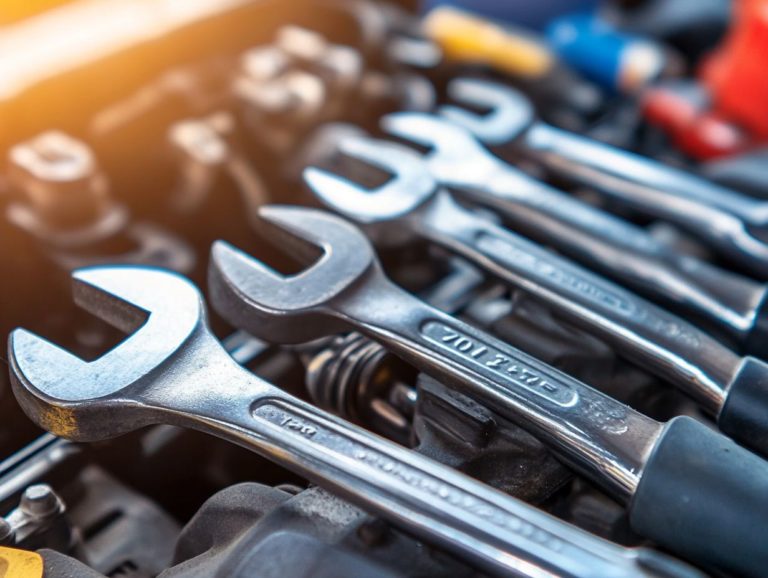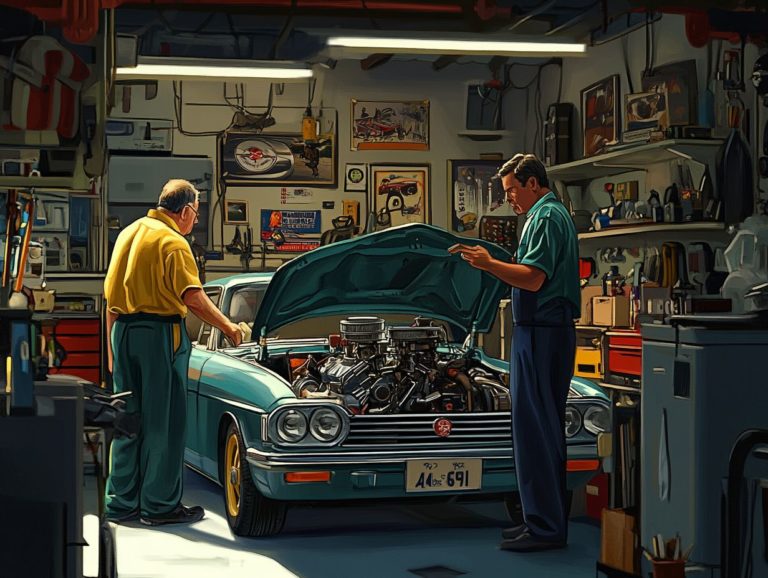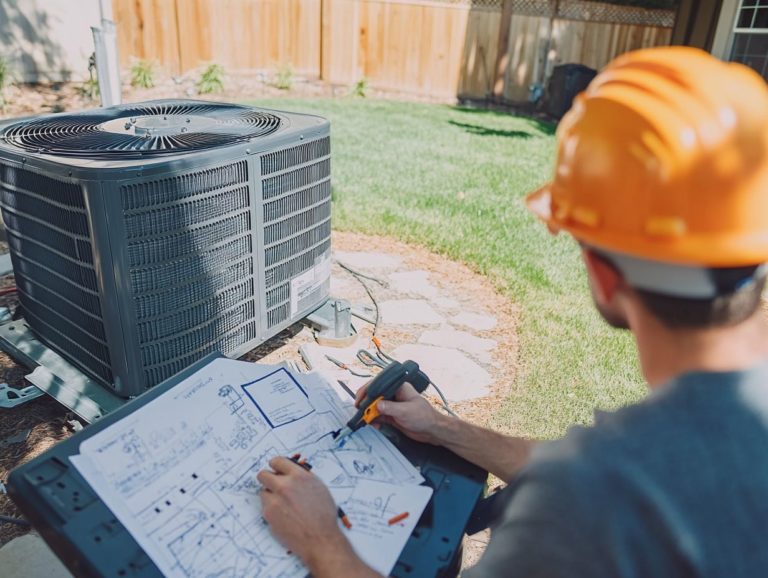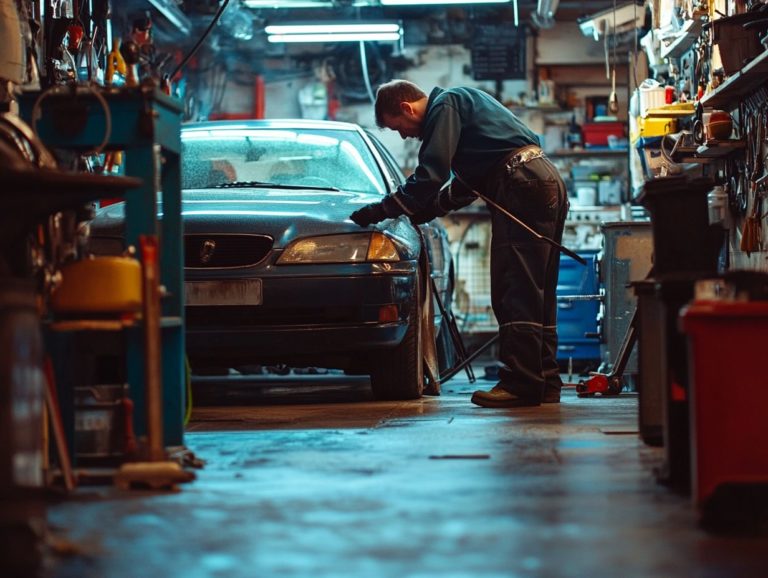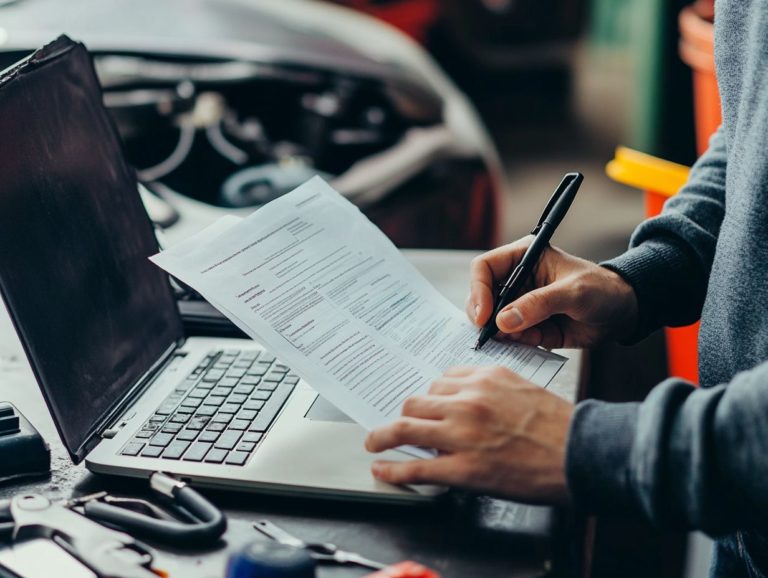How to Handle Common Overheating Issues
Overheating can be a frustrating and dangerous problem for your vehicle.
Understanding the causes and signs is essential for every car owner.
A myriad of factors can lead to this issue, ranging from a broken cooling system to low coolant levels or even a blocked radiator.
Recognizing the symptoms is vital for you to keep your car safe!
Implement preventive measures through regular maintenance, and know how to manage an overheating emergency with confidence.
Stay knowledgeable and ensure your vehicle operates seamlessly!
Contents
- Key Takeaways:
- Understanding Overheating
- Signs of Overheating
- Common Causes of Overheating
- Preventing Overheating
- Dealing with an Overheating Emergency
- Frequently Asked Questions
- 1. What are the common causes of overheating issues in vehicles?
- 2. How can I prevent my vehicle from overheating?
- 3. What should I do if my car starts to overheat while driving?
- 4. Can I continue driving if my car is overheating?
- 5. What should I do if my coolant levels are low?
- 6. Is it necessary to visit a mechanic for an overheating issue?
Key Takeaways:
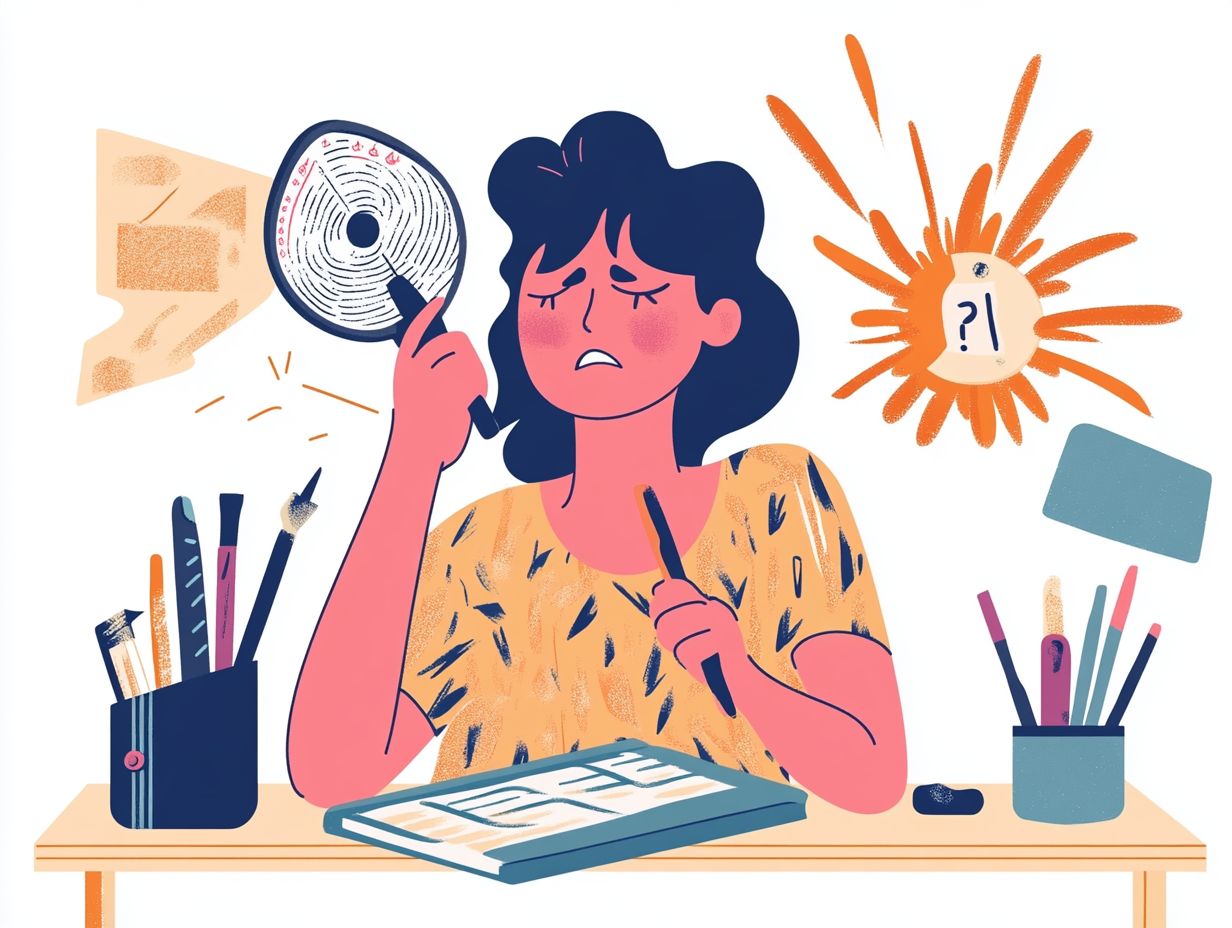
- Regular maintenance and inspections are crucial to prevent overheating issues.
- Low coolant levels, broken cooling systems, and blocked radiators are common causes of overheating.
- Immediate steps to take during an overheating emergency include pulling over, turning off the engine, and waiting for it to cool down before checking for potential issues.
Understanding Overheating
Understanding vehicle overheating is essential for you as a driver.
Neglecting it can lead to serious engine damage.
An overheating engine often signals various issues within the cooling system, such as a broken water pump or low coolant levels.
Being aware of these potential problems allows you to take preventative measures to maintain your engine’s optimal performance.
Regular inspections and timely repairs can save you from costly breakdowns and ensure your vehicle runs smoothly, especially during those sweltering summer months.
What Causes Overheating?
Several factors can lead to engine overheating.
This situation can significantly affect both the performance and safety of your vehicle.
Understanding these causes is essential for you as a car owner.
Even minor issues can spiral into major problems.
If your water pump isn t functioning properly, it won t circulate coolant effectively. This can lead to heightened temperatures in the engine.
A stuck thermostat can also block proper coolant flow, triggering overheating.
If coolant levels run low due to leaks or a lack of maintenance, it compromises the coolant s ability to absorb and dissipate heat.
This puts extra strain on the radiator’s cooling capacity.
By keeping a vigilant eye on these components, you can protect your vehicle from potentially hazardous overheating scenarios.
Signs of Overheating
Recognizing the signs of an overheating engine is crucial for drivers.
Early detection can save you from extensive damage and costly repairs.
You should be on the lookout for common symptoms such as:
- a rising engine temperature gauge
- steam escaping from under the hood
- a sweet smell signaling coolant leaks
Pay attention to the warning lights on your dashboard.
They alert you to potential issues within your vehicle’s cooling system.
This gives you the power to take prompt action.
Identifying Symptoms
Identifying the symptoms of an overheating engine can spare you from hefty repair bills and serious safety risks.
If you notice steam rising from under the hood, that s usually a surefire sign that something isn t right.
Watch your temperature gauge; if it consistently reads higher than normal, it s time to dig deeper.
Be vigilant about any coolant leaks as well, since they can worsen the situation.
Ignoring them may lead to even more significant engine damage.
By regularly monitoring these indicators, you enhance the longevity of your vehicle and ensure a safer driving experience overall.
Common Causes of Overheating
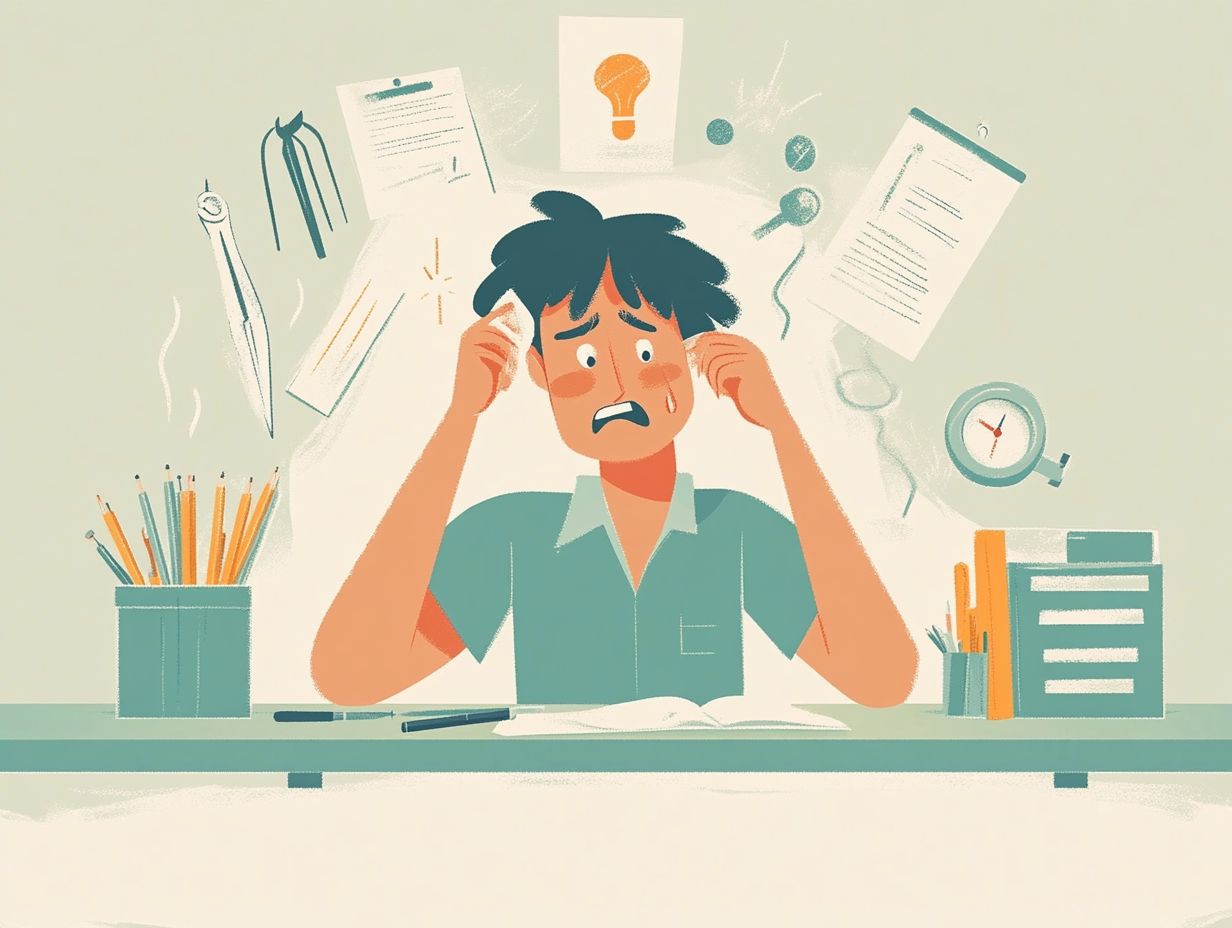
Understanding the common causes of overheating gives you, as a vehicle owner, the power to take proactive steps.
This can prevent costly repairs and ensure your vehicle operates safely.
By being informed, you can safeguard your investment and enjoy a worry-free driving experience.
Faulty Cooling System
A faulty cooling system is one of the primary culprits behind engine overheating. If left unaddressed, it can lead to severe engine damage. This system is crucial for regulating your engine’s temperature and includes several essential components, such as the radiator, water pump, and coolant.
When the radiator becomes clogged or the coolant level runs low, heat cannot dissipate effectively. This results in dangerously high temperatures. Engaging in regular maintenance checks is vital to ensure these components function smoothly. Without it, even minor issues can snowball into significant problems.
By performing routine checks and topping off the coolant as needed, you can avoid costly repairs linked to overheated engines and keep your vehicle performing at its best.
Low Coolant Levels
Low coolant levels dramatically heighten the risk of engine overheating. The coolant plays a vital role in regulating engine temperature.
When coolant is insufficient, it hampers the engine s ability to cool down properly. This can lead to potential damage and costly repairs. Regular maintenance should include checking coolant levels. Neglecting this crucial task may result in serious complications.
By ensuring that coolant remains at the optimal level, you help safeguard your engine s performance and longevity. Overheating compromises driving safety and can trigger more extensive issues that demand immediate attention. Therefore, making coolant checks a routine part of your vehicle maintenance is essential.
Blocked Radiator
A blocked radiator can severely impair your cooling system’s performance, increasing the risk of engine overheating.
When debris, corrosion, or other materials clog the pathways within the radiator, it restricts coolant flow. This disruption hampers the engine’s ability to dissipate heat, resulting in dangerously high temperatures. Such a situation threatens the integrity of engine components and can lead to costly repairs.
Regular maintenance, including flushing the radiator and checking for blockages, is crucial for optimal coolant circulation. By investing time in preventive care, you can minimize the risk of overheating and enhance the longevity of your engine.
Preventing Overheating
Preventing overheating is vital for preserving your engine’s performance and ensuring your vehicle is safe on the road. Regular maintenance is your best defense against overheating, including thorough inspections of the cooling system and monitoring coolant levels to prevent problems.
By adopting proactive maintenance strategies and working with a qualified technician, you can significantly reduce risks and extend your vehicle’s lifespan, especially during the scorching summer months.
Regular Maintenance and Inspections
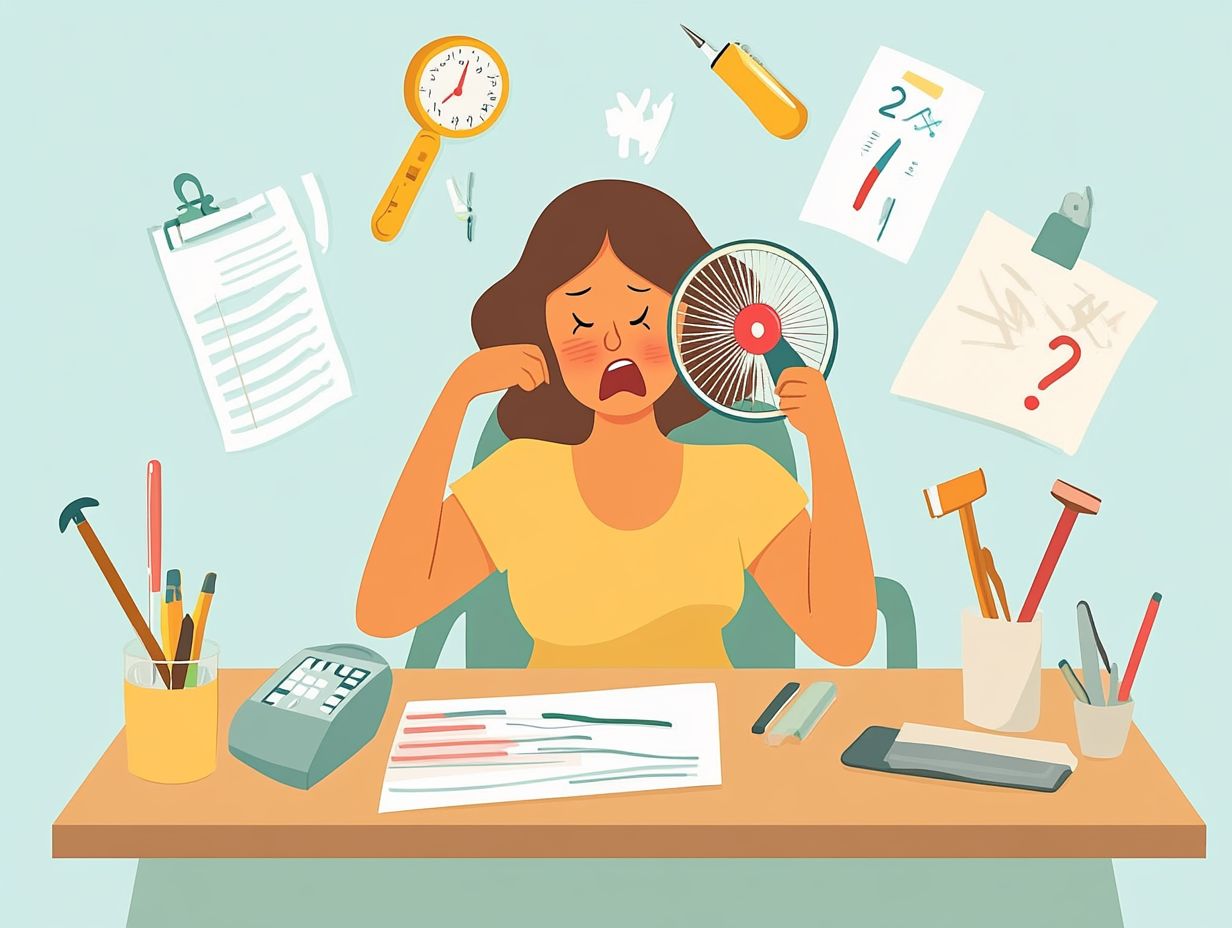
Regular maintenance and inspections are essential for preventing engine overheating and ensuring your vehicle operates at its best. These practices not only extend the life of your car but also enhance safety on the road.
Among the many aspects of vehicle care, monitoring your coolant levels is particularly crucial. Insufficient coolant can result in serious engine damage. Recognize the value of a professional technician’s assessment, which can reveal issues that may not be immediately apparent.
By scheduling routine checks, experts can confirm that all components are functioning correctly. This helps you avoid costly repairs down the line and provides you with peace of mind on every journey.
Dealing with an Overheating Emergency
When faced with an overheating emergency, you must act swiftly and decisively to protect both your engine and your safety on the road. If you notice the temperature gauge creeping up or steam escaping from under the hood, pull over immediately!
This proactive step prevents potential engine damage and allows you to evaluate the situation. You can then summon a technician if repairs are necessary.
Schedule your maintenance check today to keep your engine in top shape!
Immediate Steps to Take
When you find yourself dealing with an overheating engine, taking immediate action can greatly reduce potential damage and ensure the safety of everyone in the vehicle.
First, locate a safe spot to pull over, such as a parking lot or the shoulder of the road, well away from traffic. Turn off the engine to prevent further strain and avoid any internal damage.
Once you re parked safely, take a moment to assess the situation. Look for signs of steam or any unusual odors that could indicate a more serious problem. If you see steam, resist the urge to open the hood right away, as the escaping steam can lead to burns.
Evaluate your options: consider whether it s best to call for roadside assistance or if it s feasible to tackle repairs on-site.
Frequently Asked Questions
1. What are the common causes of overheating issues in vehicles?
Common causes of overheating include low coolant levels, a malfunctioning radiator, a faulty part that helps regulate engine temperature, and a blocked or leaking cooling system.
2. How can I prevent my vehicle from overheating?

Regular maintenance, such as checking coolant levels and replacing worn-out parts, can help prevent overheating. Pay attention to warning signs, like the temperature gauge rising or steam coming from the engine.
3. What should I do if my car starts to overheat while driving?
If your vehicle starts to overheat while driving, pull over to a safe location and turn off the engine. Allow the engine to cool down before checking for visible signs of overheating, like steam or hot engine components.
4. Can I continue driving if my car is overheating?
No, continuing to drive when your car is overheating is not recommended. This can cause further damage to the engine and lead to costly repairs. Pull over right away and take action!
5. What should I do if my coolant levels are low?
If your coolant levels are low, top them off with the recommended type of coolant for your vehicle. Check for any leaks in the cooling system and address them promptly.
6. Is it necessary to visit a mechanic for an overheating issue?
If you re not familiar with car maintenance and repairs, visiting a mechanic for an overheating issue is best. They can diagnose the cause and make necessary repairs to prevent further issues.

